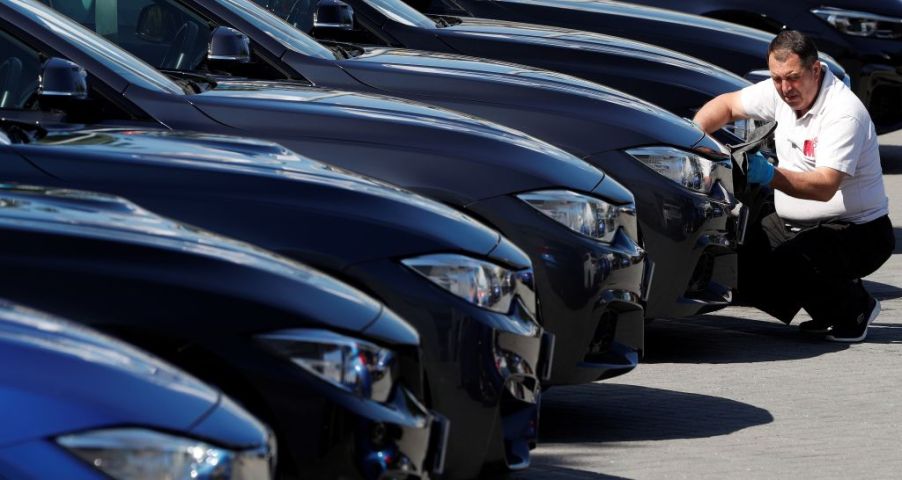
How Do You Know If You’re Getting a Good Lease Deal?
When shopping for a new car, it’s easy to get caught up in all of the numbers and car sales terms, especially when it comes to leasing. In reality, it’s easy to figure if you know what you’re looking at when the salesperson goes over the final sales numbers with you. And while different manufacturers and cars will have different factors that go into each list, here are some guidelines that you can follow in order to ensure that you’re getting a good lease deal.
As a disclaimer: Note that the examples we use here do not factor in the sales tax, registration, and title fees as those numbers can vary depending on your state and county.
Ask these three questions first
According to Edmunds, there are three important questions to ask the dealer when you’re trying to figure out if the lease deal that you’re getting is good:
- How much money, in total, is needed to start with?
- How much is the monthly payment including the taxes and fees?
- How many miles per year are allotted on this lease?
Your down payment amount (cap cost reduction), total monthly payment, and numbers of miles per year that you can drive are the three most important factors on the lease. The first two factors are concerning the total amount of money that you’re going to spend for the lease term while knowing the mileage cap per year is important because you will be charged a certain amount for every mile that you’re over if/when you return the car at the end of the lease.

Look for a high residual value
While the car’s residual value will differ depending on the manufacturer, it’s important to find a car with a high residual value. “The residual value is the estimated value of the car at the end of the lease,” states Instamotor. So if a car’s value is 60% at the end of the lease term, then you’re monthly payment during the lease will be lower than a car that’s worth 50% of its value at the end of the term, for example.
Here is an example
Let’s say that the car you’re leasing costs $20,000 and has a 65% residual value. The lease structure is based on the difference between the selling price of the car and it’s residual value, so the math would look like this:
$20,000 x .65 (residual) = $13,000
$20,000 – $13,000 = $7,000
7,000/36 months = $194.44/per month
As we can see, if the residual amount was lower, say 50%, then we would have ended up with a monthly payment of $277.77. That’s a pretty big difference.

Pay attention to the money factor
The “money factor” is the amount the interest charged on the lease. It’s sometimes also referred to as the “lease factor” or “lease fee.” We advise that you ask the salesperson what the money factor is, but note that it will be different for every manufacturer. But the lower the number, the less interest that you’ll pay.
One example of a money factor would be 0.00125. If you want to convert that to an equivalent interest rate, then multiply it by 2,400.
0.00125 x 2,400 = 3%
As we can see, 0.00125 translates into a 3% interest rate, which is pretty good. Just do that every time and you’ll be able to see what the interest rate will be in order to decide if you’re getting a good deal. As Edmunds states, if the money factor starts with three zeros after the decimal point (.0009, for example), then you probably have a low-interest rate. If it starts with two zeros, then it’s “average.” And if you get a money factor that starts with two zeroes and anything above 0.0035, then it would be high.

Always ask about additional offers and rebates
Once you figure out the residual value and money factor amounts to determine that you’re getting a good lease structure, we recommend that you always ask for any other rebates or offers (college grad, military, etc.) to make sure that you’re getting the lowest price on the car possible. By doing so, you’ll ensure that you’re getting the best lease deal you can without leaving money on the table.



